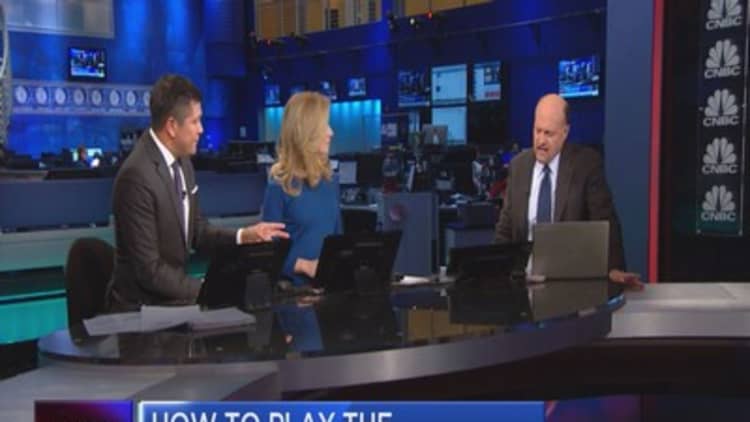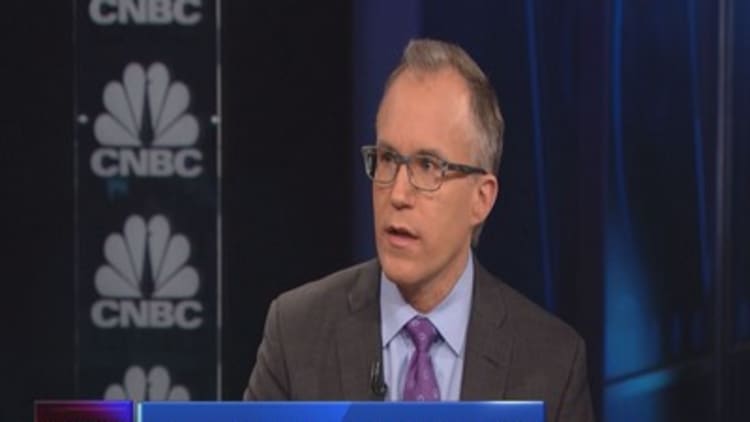

After a tumultuous start for markets in 2016, experts on Thursday cautioned that long-term investors should not panic.
The Dow Jones industrial average and Nasdaq both closed the day in correction territory, more than 10 percent lower than their highs last year. The has fallen 5 percent already this year, its worst four-day start ever.
The selling, though, marks more of a "breather" or "reset" in a sustained bull market than fundamental weakness, contended Brian Belski, chief investment strategist at BMO Capital Markets.
"Longer-term investors should kind of watch the market settle in here, take a deep breath and let the fundamentals work," he said on a CNBC special report Thursday night.
All three major U.S. averages slipped more than 2 percent on Thursday, with the Nasdaq taking the biggest hit of 3 percent. The selling in the United States followed continued uncertainty in China, where a more than 7 percent drop triggered a trading halt two separate times this week.
U.S. futures pointed to more near-term uncertainty, indicating a mixed open on Friday. Still, CNBC's Jim Cramer contended Thursday night he did not see risks of a "real catastrophe" like the 2008 financial crisis.
"I don't think there's systemic risk here, so I'm not telling people to get out now," he said.
However, Cramer noted that investors now face a "smaller universe" of opportunity. He cited not only the global economic fears but also the Federal Reserve's path to interest rate normalization.
The U.S. nonfarm payrolls report Friday morning will snag investors' attention. Asian markets overnight will also help determine how stocks will end the week.
Speculation of more devaluation of the Chinese yuan, and the lengths of government intervention in markets, will also help shape sentiment. China's securities regulator said Thursday it would suspend its circuit-breaker system that led to the halts this week.
Investors will also keep an eye on crude oil markets, where oversupply continues to weigh on prices. U.S. crude settled about 2 percent lower Thursday.
Helima Croft of RBC Capital Markets said she would monitor ongoing conflict between Saudi Arabia and Iran to see if it affects the global supply situation.




